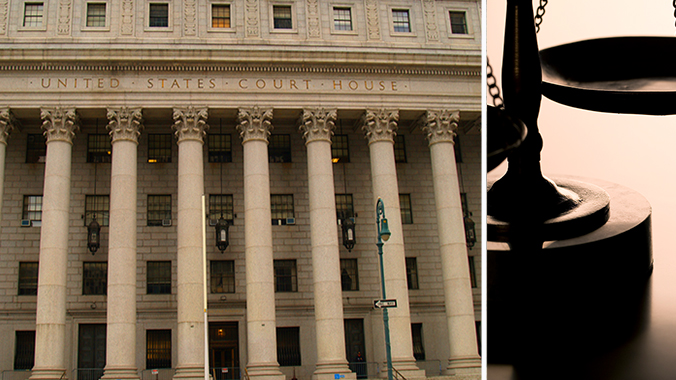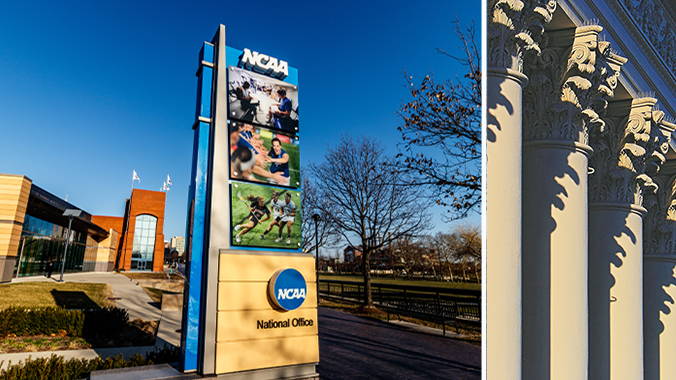How Legal Professionals are Using AI Technology, Conducting AI Audits, and Keeping up with the Ethical Use of AI





On-Demand: June 7, 2024
3.5 hour CLE
Tuition: $295.00
Co-Sponsored by myLawCLE
Get this course, plus over 1,000+ of live webinars.
Learn More
Training 5 or more people?
Sign-up for a law firm subscription plan and each attorney in the firm receives free access to all CLE Programs
Program Summary
Session I - An Explorer’s Guide: Finding AI treasure to improve your legal practice - David Cohen and Marcin Krieger
Join us as we set sail for AI-land! You can leverage new advances in generative AI to improve the quality and efficiency of your work! But how do you find the right tools when the old maps no longer work? This session will explore how lawyers and other legal professionals can discover and leverage the latest AI technology.
Key topics to be discussed:
- What AI and generative AI are
- How to evaluate new e-discovery and general legal AI tools
- Ethical considerations for the use of AI
- Tips and tricks practitioners should know about
Session II - AI Audit: A lawyer's guide to navigating the new frontier – Rachel Rose
This webinar explores the critical role of AI audits in the responsible development and deployment of artificial intelligence technologies. As AI continues to revolutionize various sectors, it brings with it a host of ethical, legal, and societal challenges. This presentation explores the concept of AI audits as a comprehensive approach to addressing these challenges, ensuring AI systems are fair, transparent, and compliant with evolving standards and regulations. It covers the rationale behind AI audits, their benefits, how to prepare for them, the challenges involved, and best practices for effective auditing, concluding with a look at the future prospects of AI auditing in the tech world.
Key topics
- Understanding the importance of AI audits
- Recognizing the benefits and challenges
- Preparing for AI audits
- Frameworks for AI audits
- Best Practices in AI auditing
- Future prospects and trends
Session III - Ethical Use of Generative AI By Lawyers: How to avoid falling behind - Steve Delchin and Kenneth Moore
Generative AI promises to fundamentally change the practice of law in the next several years, but how do the rules of professional conduct impact a lawyer’s use of this revolutionary technology? What are the ethical pitfalls when using generative AI? And are there ethical risks for lawyers in not using AI? Without a doubt, generative AI raises a number of ethical issues, and state bar associations are finally beginning to weigh in. This engaging session will fully explore the ethical use of generative AI by lawyers.
Key topics to be discussed:
- Generative AI, a game-changing technology for lawyers
- Ways that lawyers and in-house law departments are using AI for efficiency/cost savings
- Ethical duties that apply to the use (and non-use) of AI
- Ethical use of AI in the cloud
This course is co-sponsored with myLawCLE.
![]() Closed-captioning available
Closed-captioning available
Speakers
 David R. Cohen | Reed Smith LLP
David R. Cohen | Reed Smith LLP
David is chair of Reed Smith’s Records & E-Discovery (RED) Practice Group and a member of the firm’s Global Leadership Team. A Harvard Law graduate with more than 35 years of commercial litigation experience, David serves as e-discovery counsel and information governance counsel to some of the top companies in the world. David also represents clients in complex litigation matters, and counsels’ companies of all sizes on information governance and litigation readiness issues. He has been recognized individually by Chambers Global, Chambers USA, Super Lawyers, Best Lawyers, and Who’s Who Legal as a top e-discovery lawyer and litigator.
The 70+ lawyer RED Practice Group that David leads has also been recognized by Chambers and Legal 500 as a leading e-discovery practice. He currently chairs the EDRM Project Trustees and serves on the advisory board of the Georgetown Advanced eDiscovery Institute. He was involved in setting up the E-Discovery Special Masters (EDSM) program in the U.S. District Court for the Western District of Pennsylvania, has served as an EDSM in multiple cases, and has drafted and supported amendments to state and federal rules focusing on e-discovery. He has authored numerous legal publications and is a frequent presenter at continuing legal education seminars regarding e-discovery and information governance. He is the principal architect of the E-Discovery App, launched in 2020, and leads ongoing App development and innovation initiatives.
 Marcin Krieger | Reed Smith LLP
Marcin Krieger | Reed Smith LLP
Marcin is an associate in Reed Smith’s Records & E-Discovery Group and a founding member of the group, having joined the firm in 2011 as an e-discovery attorney. His brings a unique skill set to Reed Smith, with 15+ years of experience in e-discovery law, a background in computer science, and a Relativity Certified Administrator credential. Marcin leverages his deep technical understanding and years of experience with technology assisted review (TAR) to advise case teams and clients on the most efficient and defensible approaches to large-scale document review projects.
He collaborates with case teams to develop creative solutions to complex large document review challenges and provides user training and support for various e-discovery software platforms. In addition, Marcin plays an active role in beta testing and proof-of-concept evaluation of new technology for potential adoption by the firm. He is keenly interested in the potential applications of AI in e-discovery and has conducted product evaluations as well as written and presented on this topic frequently over the last year.

Rachel V. Rose | Rachel V. Rose – Attorney at Law, PLLC
Rachel V. Rose, JD, MBA (Houston, Texas) has a unique background, having worked in many different facets of healthcare, securities, cybersecurity, as well as international law and business throughout her career. For over a decade, her practice has focused on transactional, compliance, and litigation matters related to cybersecurity, health care, securities, and Dodd-Frank/False Claims Act whistleblower claims. She has conducted HIPAA Risk Analyses for a variety of domestic and international organizations and represented persons related to government enforcement inquiries and responses on cybersecurity and healthcare related matters. Ms. Rose worked on Capitol Hill when HIPAA passed in 1996 and worked at HHS in 2009 when the HITECH Act was being implemented.
In addition to being extensively published, a sought-after presenter, and quoted expert, Ms. Rose holds an MBA with minors in healthcare and entrepreneurship from Vanderbilt University, a law degree from Stetson University College of Law, and an Executive Certification in Leadership and Negotiation from Harvard Law School. She is also the co-editor of the American Health Lawyers Association’s Enterprise Risk Management Handbook for Healthcare Entities (2nd Edition), as well as a co-author of the ABA’s books The ABCs of ACOs and What Are International HIPAA Considerations?, as well as various chapters in legal and medical books alike.
She has been named consecutively to the Texas Bar College, the National Women Trial Lawyers Association’s Top 25, Houstonia Magazine’s Top Lawyers (healthcare), the National Trial Lawyers Association’s Top 100, SuperLawyers (healthcare), as well as 1st Healthcare Compliance’s 2019 and 2022 Top Presenter. Ms. Rose is also an Affiliated Member with the Baylor College of Medicine’s Center for Medical Ethics and Health Policy, where she teaches bioethics.
 Steve Delchin | Squire Patton Boggs
Steve Delchin | Squire Patton Boggs
Steve Delchin is an experienced lawyer in the Cleveland office of Squire Patton Boggs. He has been with the firm for more than 26 years and served a clerkship with the Sixth Circuit Court of Appeals. Steve has been practicing in the field of professional ethics for most of his career and has become well known for counseling clients on sophisticated ethical issues. For the last six years, Steve has written and lectured extensively on the use of artificial intelligence in the practice of law. He served as a member of the American Bar Association AI Ethics Group, which was formed to address ethical issues raised in the use of artificial intelligence in the practice of law.
 Kenneth C. Moore | Squire Patton Boggs
Kenneth C. Moore | Squire Patton Boggs
Kenneth C. Moore is Chair of the Squire Patton Boggs Ethics Committee. For more than 50 years Ken has practiced in the fields of environmental law and commercial litigation, starting with the conclusion of his Fourth Circuit clerkship. For more than 20 years, he has spent a substantial proportion of his time in the field of professional ethics, advising clients – including other law firms − on legal ethics and governance issues and counseling firm lawyers around the globe. Among other recognitions, Ken has been named in Who’s Who in America and The Best Lawyers in America (over 30 years). Ken is a current Trustee and past chair of the Hiram College Board of Trustees and the past Chair and a Trustee Emeritus of the Board of Trustees of Laurel School.
Agenda
Session I – An Explorer’s Guide: Finding AI treasure to improve your legal practice | 10:00am – 11:40am
- What AI and generative AI are | 10:00am – 10:30am
- How to evaluate new e-discovery and general legal AI tools | 10:30am – 11:00am
Break | 11:00am – 11:10am
- Ethical considerations for the use of AI | 11:10am – 11:25am
- Tips and tricks practitioners should know about | 11:25am – 11:40am
Session II – AI Audit: A lawyer’s guide to navigating the new frontier | 11:40am – 12:50pm
- Understanding the Importance of AI Audits: Gain insight into why AI audits are crucial in today’s tech landscape, especially in mitigating risks associated with biases, ethical dilemmas, and privacy concerns in AI systems | 11:40am – 11:50am
- Recognizing the Benefits and Challenges: Learn about the various benefits of conducting AI audits, such as regulatory compliance, the main regulations to be mindful of risk management, and maintaining public trust, while also understanding the challenges like resource intensity and the need for specialized expertise | 11:50am – 12:00pm
- Preparing for AI Audits: Initiate first steps that can be preemptively undertaken to successfully set the stage for AI audits, from identifying key stakeholders to conducting AI mapping exercises | 12:00pm – 12:10pm
Break | 12:10pm – 12:20pm
- Frameworks for AI Audits: Acquire knowledge on how to determine the breadth and depth of an AI audit, considering factors like the AI system’s purpose, risk profile, and regulatory environment | 12:20pm – 12:30pm
- Best Practices in AI Auditing: Understand the best practices for conducting effective AI audits, including establishing clear audit objectives, assembling a multidisciplinary team, and thorough documentation and communication of findings | 12:30pm – 12:40pm
- Future Prospects and Trends: Explore the potential future of AI audits in various sectors and the likelihood of their becoming a standard practice, considering the current trends and challenges in the field | 12:40pm – 12:50pm
Session III – Ethical Use of Generative AI By Lawyers: How to avoid falling behind | 12:50pm – 2:00pm
- Generative AI, a game-changing technology for lawyers | 12:50pm – 1:05pm
- Ways that lawyers and in-house law departments are using AI for efficiency/cost savings | 1:05pm – 1:20pm
Break | 1:20pm – 1:30pm
- Ethical duties that apply to the use (and non-use) of AI | 1:30pm – 1:45pm
- Ethical use of AI in the cloud | 1:45pm – 2:00pm
Credits
Alaska
Approved for CLE Credits
2.5 General, 1 Ethics
Alabama
Pending CLE Approval
2.5 General, 1 Ethics
Arkansas
Approved for CLE Credits
2.5 General, 1 Ethics
Arizona
Approved for CLE Credits
2.5 General, 1 Ethics
California
Approved for CLE Credits
2.5 General, 1 Ethics
Colorado
Approved for Self-Study Credits
2 General, 1 Ethics
Connecticut
Approved for CLE Credits
2.5 General, 1 Ethics
District of Columbia
No MCLE Required
2.5 General, 1 Ethics hours
Delaware
Pending CLE Approval
2.5 General, 1 Ethics
Florida
Reciprocity
3 General, 1 Ethics Hours
Georgia
Approved for CLE Credits
2.5 General, 1 Ethics
Hawaii
Approved for CLE Credits
2.5 General, 1 Ethics
Iowa
Pending CLE Approval
2.5 General, 1 Ethics
Idaho
Pending CLE Approval
2.5 General, 1 Ethics
Illinois
Approved for Self-Study Credits
2.5 General, 1 Ethics
Indiana
Pending CLE Approval
2.5 General, 1 Ethics
Kansas
Pending CLE Approval
2.5 General, 1 Ethics
Kentucky
Pending CLE Approval
2.5 General, 1 Ethics
Louisiana
Pending CLE Approval
2.5 General, 1 Ethics
Massachusetts
No MCLE Required
2.5 General, 1 Ethics hours
Maryland
No MCLE Required
2.5 General, 1 Ethics hours
Maine
Pending CLE Approval
2.5 General, 1 Ethics
Michigan
No MCLE Required
2.5 General, 1 Ethics hours
Minnesota
Approved for Self-Study Credits
2.5 General, 1 Ethics
Missouri
Approved for CLE Credits
3.6 General, 1.2 Ethics
Mississippi
Pending CLE Approval
2.5 General, 1 Ethics
Montana
Pending CLE Approval
2.5 General, 1 Ethics
North Carolina
Pending CLE Approval
2.5 General, 1 Ethics
Nebraska
Pending CLE Approval
2.5 General, 1 Ethics
New Hampshire
Approved for CLE Credits
150 General minutes, 60 Ethics minutes
New Jersey
Approved for CLE Credits
3 General, 1.2 Ethics
New Mexico
Approved for Self-Study Credits
2.5 General, 1 Ethics
Nevada
Approved for Self-Study Credits
2.5 General, 1 Ethics
New York
Approved for CLE Credits
3 General, 1.2 Ethics
Ohio
Approved for Self-Study Credits
2.5 General, 1 Professional Conduct
Oklahoma
Pending CLE Approval
3 General, 1 Ethics
Oregon
Pending CLE Approval
2.5 General, 1 Ethics
Pennsylvania
Approved for Self-Study Credits
2.5 General, 1 Ethics
Rhode Island
Pending CLE Approval
3 General, 1 Ethics
South Carolina
Pending CLE Approval
2.5 General, 1 Ethics
South Dakota
No MCLE Required
2.5 General, 1 Ethics hours
Tennessee
Approved for Self-Study Credits
2.5 General, 1 Ethics
Texas
Pending CLE Approval
2.5 General, 1 Ethics
Utah
Pending CLE Approval
2.5 General, 1 Ethics
Virginia
Not Eligible
2.5 General Hours, 1 Ethics hours Hours
Vermont
Approved for CLE Credits
2.5 General, 1 Ethics
Washington
Approved via Attorney Submission
2.5 Law and Legal, 1 Ethics Hours
Wisconsin
Approved for Self-Study Credits
4 General,
West Virginia
Pending CLE Approval
2.5 General, 1 Ethics
Wyoming
Pending CLE Approval
2.5 General, 1 Ethics
More CLE Webinars
Trending CLE Webinars


![The Litigator’s Guide to Evidentiary Objections: When to hold them and how to avoid mistakes (Including 1hr of Ethics) [2024 Edition]](https://federalbarcle.org/wp-content/uploads/2024/03/The-Litigators-Guide-to-Evidentiary-Objections-When-to-hold-them-and-how-to-avoid-mistakes-Including-1hr-of-Ethics-2024-Edition_myLawCLE.jpg)




Upcoming CLE Webinars






![Revocable Living Trusts from Start to Finish [Including 1 Ethics Hour] (2025 Edition)](https://federalbarcle.org/wp-content/uploads/2024/12/Revocable-Living-Trusts-from-Start-to-Finish_myLawCLE.jpg)






























![The Litigator’s Guide to Evidentiary Objections: When to hold them and how to avoid mistakes (Including 1hr of Ethics) [2024 Edition]](https://federalbarcle.org/wp-content/uploads/2024/03/The-Litigators-Guide-to-Evidentiary-Objections-When-to-hold-them-and-how-to-avoid-mistakes-Including-1hr-of-Ethics-2024-Edition_myLawCLE.jpg)

























